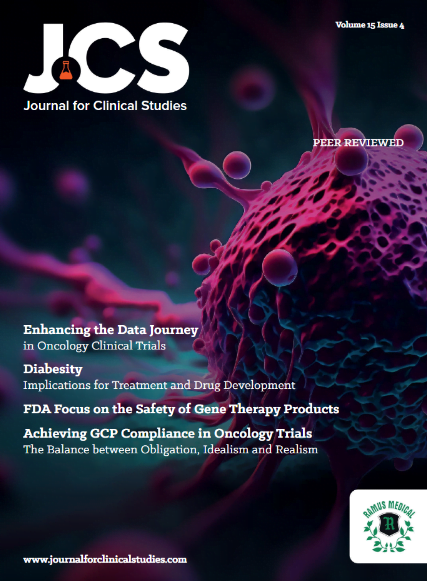Initially developed for the HIV/AIDS crisis in 1992, the US Food and Drug Administration (FDA) established the accelerated approval program to expedite the approval of drugs for serious or life-threatening conditions. The FDA grants these drugs accelerated approval based on a surrogate endpoint, which helps to speed up the drug development process. Since inauguration of the program, the FDA has typically given accelerated approval for anti-cancer therapies.
After receiving accelerated approval, drug companies are still required to conduct confirmatory trials to verify clinical benefit. If a confirmatory trial fails to do this, products may be withdrawn by the companies or by the FDA after a public hearing. In addition, the FDA notes that confirmatory trials must be completed with “due diligence.” They should be conducted by the time an accelerated approval application is submitted and if the product will be assessed based on the surrogate endpoint or intermediate clinical endpoint.1,2
Project Confirm is an initiative by the FDA Oncology Center of Excellence (OCE), designed to provide information and transparency on the accelerated approval process.3 It includes lists of accelerated approvals for drugs that have requirements for ongoing confirmatory trials, products that have been withdrawn, and agents that were verified through post-marketing trials and granted traditional approval. More information on accelerated approval and confirmatory trial requirements can also be found in the FDA guidance for industry, Expedited Programs for Serious Conditions – Drugs and Biologics.2
When Confirmatory Trials are Needed for Approval
In September 2022, the FDA’s Oncologic Drugs Advisory Committee (ODAC) met to discuss the efficacy and safety of a few products under or seeking accelerated approval, including 1) Pozenveo (poziotinib), from Spectrum Pharmaceuticals, Inc, for the treatment of patients with previously treated, locally advanced, or metastatic non–small cell lung cancer (NSCLC) harboring HER2 exon 20 insertion mutations; and 2) Pepaxto (melphalan flufenamide), from Oncopeptides AB, for use in combination with dexamethasone to treat adult patients with relapsed or refractory multiple myeloma who have received ≥4 prior lines of therapy and whose disease is refractory to ≥1 proteasome inhibitor, 1 immunomodulatory agent, and 1 cluster of differentiation 38–directed monoclonal antibody. The committee found concerns related to the confirmatory trials for these products.
Pozenveo was submitted for accelerated approval with data from phase 2 study, ZENITH20. The primary endpoint for the trial was the overall response rate, which the FDA found to be low compared to other available therapies for NSCLC. A high rate of adverse events and poor tolerability were also associated with the proposed dose of Pozenveo. Due to these concerns, a confirmatory trial would be important for verifying clinical benefit. However, the sponsor planned to use a different dosing regimen for the phase 3 confirmatory trial, PINNACLE, than the dose used for ZENITH20. Another major issue was that the confirmatory trial started several months after the sponsor submitted the marketing application. Because results were not anticipated until at least 2026, patients could be exposed to toxicity risks for a prolonged amount of time, the FDA noted.















